JENSEN ACKLES HAS THE KIND OF VOICE that seemingly shakes the atmosphere, like a heavy bass in an empty room or a roll of thunder on a stormy summer night. Even on a Zoom call with a geographic 2,000 or so miles between us, his deep, calming tones radiate as if he’s right beside me. When Ackles first hopped on the call, we immediately tried to establish where he was—and it wasn’t as easy as you’d think. “I was just talking to my aunt, and she was like, ‘Where in the world are you right now?’” he says. “And I’m like, ‘I don’t know. I don’t know anymore….’”
The 44-year old actor got his start in the late 1990s, first joining the cast of the NBC soap Days of Our Lives in 1997. The role earned him three consecutive Daytime Emmy nominations. By 2003, he’d made it to primetime: Ackles appeared in the final season of the WB’s Dawson’s Creek in a guest role as the love interest to Michelle Williams’ Jen Lindley; in 2004, he joined the ensemble of another WB hit, Smallville. Then Ackles got his definitive shot at stardom in 2005, when he and Jared Padalecki were cast as the leads of what would become the massive fantasy hit Supernatural, as the monster-hunting Winchester brothers. Ackles played the mischievous-but-understanding, shirt-jacket-loving Dean Winchester for a full 15 seasons, right up until the show aired its series finale in 2020. He’s reprising the role as the narrator on The Winchesters, an upcoming prequel series that will follow the story of character’s parents. (Which he’s also producing with his wife Danneel Ackles under their Chaos Machine production company.)
Ackles was being hyperbolic, of course. He is aware of his current location: Albuquerque, New Mexico, where he’s shooting his latest role in the ABC mystery series Big Sky. It’s just that he’s spent the past few months promoting the third season of Amazon Prime Video’s The Boys across the globe, and it’s become hard to keep up with his latitude and longitude. “They pushed it big time,” Ackles says of the press campaign behind the season, speculating that maybe the pandemic had limited the promotion of the show’s second season, which in turn left them with more scratch when the time came for his entrée into the series. “I think the publicity department probably had a little extra money in the coffers and just decided to blow it out a little bigger than normal,” he says.
In Season 3 of The Boys, Ackles plays Soldier Boy, an All-American, superpowered soldier who was deployed by the CIA during the Cold War. Picture Captain America, except by the time he’d thawed out from decades on ice, he’d gone bad. Soldier Boy is the kind of guy who calls women “broads” and men “sissies” and would happily light up a few Cuban cigars in a maternity ward. And when he wakes up in the present, he isn’t exactly eager to get with the times. This is, of course, a far departure from the warm, emotionally intelligent Dean Winchester. But as it happens, The Boys showrunner Eric Kripke also created Supernatural, and Ackles learned about the role during a personal call with his onetime collaborator. After sending in an audition tape and having a little back and forth with Kripke, Ackles got the part.
“Usually you’re going through casting directors and network studio execs, and all that stuff,” he says, “but I had a direct line to the showrunner.” Still, there’s a hint of self-consciousness in how Ackles recounts the story. He tells me I wouldn’t believe the shortlist of actors—whom he refers to as “movie stars”—being considered to play Soldier Boy before he got in the mix. But he can’t reveal those names. “If we ever meet in private,” he jokes, “I’ll whisper in your ear.”
As fans continue to dissect the end of show’s latest season, Ackles spoke to Men’s Health about how The Boys explored the evolution of toxic masculinity through Soldier Boy, how it let him to grapple with his own relationship to masculinity, how he bulked up to play the character (whose first appearance on screen is in the buff), and whether he would appear in a Marvel or DC movie after his season on a scathing superhero satire.
I’ve read that you had to fight to get the role of Soldier Boy on The Boys. It sounds like it was originally meant for an older actor, more of a John Wayne type. What was it like fighting to get the role?
I was calling [The Boys creator Eric Kripke] in regards to something completely unrelated. It was a different project. I wanted his take on a few things. Just as we were wrapping up the conversation, I said, “So what’s going on over there at The Boys?” We were just about to finish up Supernatural, and I was like, “You know, I’m about to be unemployed.” Just kind of threw it out there jokingly. He immediately said, “Look, man, if you want to come over to The Boys, I’ll get you over here no problem. I’d love to have you.” And I was like, “Sign me up!”
So he sent me over this scene they had written out as an audition scene for Soldier Boy. This was peak COVID—summer of 2020. I read it, and immediately was like, “Who do I have to kill to get this part?”
Were you aware of anyone else auditioning for the role?
I do know that there were some names that I think the network was considering. There was a short list of names. And when [Kripke] read off a few of those names to me, I was like, “Oh, well, there’s no way. I don’t have a shot at this. Those are movie stars.”
Would you be able to tell me any of the names on the shortlist?
Oh, no. I’d get us both blacklisted. If we ever meet in private, I’ll whisper in your ear.
Before playing Soldier Boy, you were known for playing Dean on Supernatural—a much more heroic, honorable character. Did you feel like, in playing Soldier Boy, you were going against type?
Oddly enough, no. I felt like Soldier Boy could have very easily been the Dean Winchester of the 1950s or the 1960s. It was just an older generation mentality that this guy had. He’s not a bad guy. There’s an old actor—I’m forgetting his name—who always played the bad guys in movies, and he’s always asked, “Why do you think you always play bad guys?” And he says, “I’ve never played a bad guy in my life.”
Soldier Boy certainly lines up in that kind of framework, in that he thinks he’s doing what needs to be done. He thinks he’s walking the right walk, when in actuality, he’s just terribly mistaken. He thinks that he’s the hero, when he’s really horribly broken and is clearly the antagonist.
Soldier Boy is an embodiment of this very American strain of toxic masculinity. How do you interrogate that while also empathizing and relating to your character?
I mean, look, I think we all could identify with a lot of what Soldier Boy was bringing to the table—whether we see it in celebrities, politicians, or even your neighbors. Toxic masculinity, like you said, is something that we tried to poke at with this character. And that wasn’t that difficult to do, because, you know, open your eyes, look around; it’s very relevant today, we see what that kind of ideology has given us.
Even personally, I still find myself doing things that make me think, “Why am I doing that? You don’t have to puff your chest up when you walk into a room. You don’t have to pretend like you don’t have emotions.” You know? It’s all that stuff. It’s all of the subtleties that stem from this American idea, or this generational idea, of what it is to be a man. Masculinity is necessary, in my opinion. I think that we absolutely need masculinity as much as we need femininity, but it’s when we start to steer into that toxic lane that we need to be careful—then we need to identify it, we need to bring it up, and we need to have a conversation about it. So that’s kind of what Soldier Boy’s arc was about—identify it and talk about it.
And Soldier Boy and Homelander really identify and talk about the generational impact of our expectations around masculinity.
Kripke and his ragtag gang of writers are exceptional at what they do. It’s not just a spectacle of a show; it has these really smart twists and turns, there’s a lot of narrative packed into these crazy storylines. And there’s a lot of heart to it! It’s a lot to marinate. I think it’s probably good that they only release one episode per week, because it gives the audience a chance to really unpack it.
What was the most shocking thing you read in a script for this season?
Oh gosh. Where do I begin? Just the whole idea of Herogasm. Opening that script was like, seeing the description of what it was going to look like—that was something that made me think, “I don’t know how they’re going to pull that off, but I’m excited to be there, because I want to see how this goes down.” Then there was the scene where Soldier Boy gets caught in the bed with Paul Reiser’s maids. I read that and I laughed out loud.
This content is imported from Instagram. You may be able to find the same content in another format, or you may be able to find more information, at their web site.
You trained to bulk up for the role. How did you approach that process?
Well, while I was doing the costume fittings for Soldier Boy’s superhero outfit, I was flying out to Los Angeles every few weeks to try on the new progress that they were making. And in doing so, I was like, “Are you going to add some musculature to the suit? Where does that come in?” And [The Boys costume designer Laura Jean Shannon] just very pleasantly patted me on the shoulder, and she said, “Oh, Jensen, you’re going to bring me some muscles in April when you show up to set.” And I was like, “Oh. Oh, okay. Yeah. Challenge accepted.”
You never talked to anyone else about it?
I never talked to Kripke about it, I never talked to the producers. Nobody impressed that upon me. So I just kind of took it as a personal challenge. Look, we’ve all seen Hemsworth as Thor, we’ve all seen Evans as Captain America. We’ve seen these guys, how they’ve transformed their bodies and become just larger-than-life figures. And so I was like, “Well, we’re not quite at the level of spending hundreds of millions of dollars per movie here, but this is a pretty big property, and I should respect that.”
Funny enough, I’ll make a little shout out to beachbody.com, because I went on there and that’s how I got my cardio in. I just followed the random videos. [laughs] All I had was those adjustable power blocks, so I utilized those as my weights. And I did all my workouts in the basement of my house. I just made it my job, and I put on maybe 15, 20 pounds of muscle.
So after being on The Boys, would you ever consider playing a superhero in a Marvel or DC project?
Hey, who do I need to give my phone number to? I love that space, genre TV and movies. I grew up watching them. I’ve somehow managed to find myself working in that space for quite some time. I mean, Supernatural alone was 15 years. I really like the larger-than-life stories and worlds that are built in that genre space. If Marvel or DC, whoever, says, “Hey, we want you to put the outfit on,” I would be more than happy to. I enjoy it.
Is there any particular comic book character you would like to play if given the opportunity?
Oh yeah. I mean, there’s a list. But it would be more like…who wouldn’t I play?
There are rumors that you auditioned to play Captain America, which you’ve since debunked. But I wonder where that stemmed from. People must have wanted you to play him!
I think it was an internet rumor that people thought would be a good idea. And I guess some people reacted to it and continued to push that rumor along. But in my mind, I was like, “I wish!” I’ve heard that there was a short list of people and I was one of the names on the shortlist—but it never got to me!
This interview has been condensed and edited for clarity.


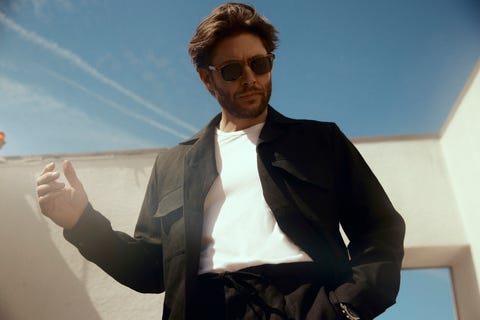
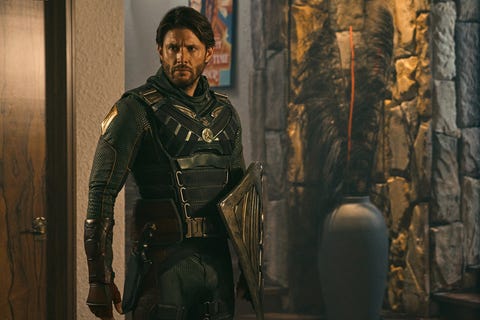
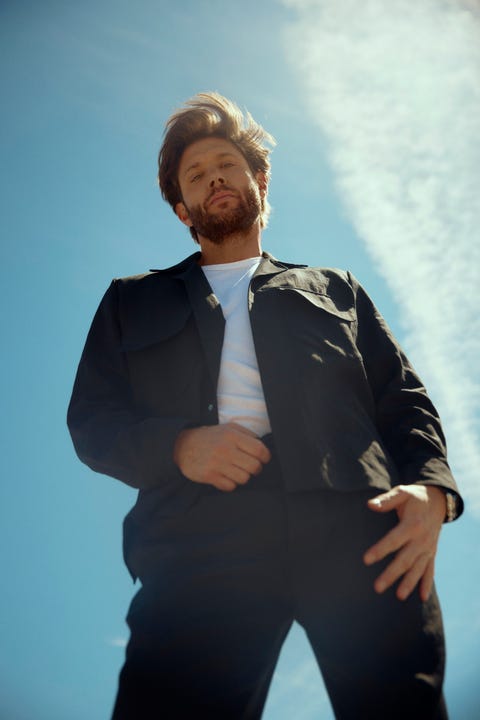
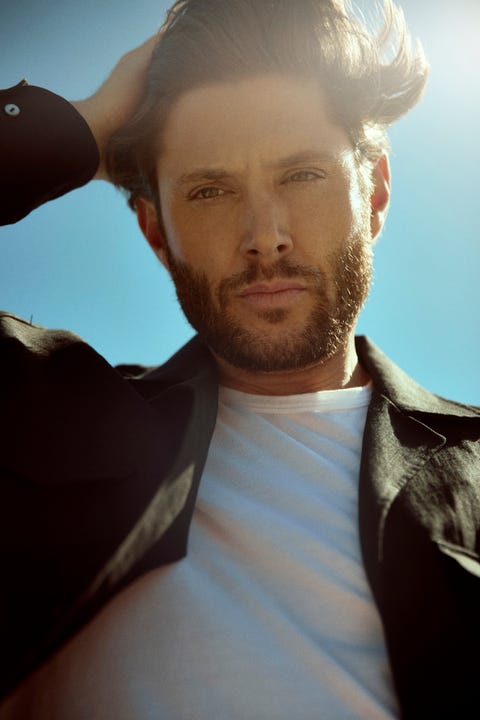
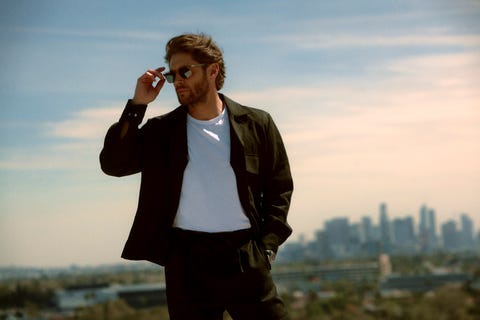
Comments are closed.